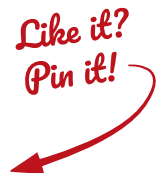Coaching is a framework in which you ask someone questions to help them find their own answers. It’s also a framework you can apply to yourself.
Here’s how to get started.
1. Identify the outcome you want.
Here are some questions to help you identify what you want:
- What would success look like?
- What outcome would feel the best?
- What result would be in alignment with who I am and the other people involved?
- How would I like to feel at the end?
- Are there any other options I haven’t considered yet?
- Is there a different way I could identify the problem?
- Is there anything I need to do first, before I do this?
- If I could whisper in the ear of God and everything would be resolved to my satisfaction, what would it look like?
If you can’t come up with any answer to these questions (and maybe they make you want to scream, “If I knew that I wouldn’t have a problem!?!?”, then the outcome you want is clarity.
Take some time here to really visualize the outcome you want.
2. Get clear on why it’s so important.
This step might seem unnecessary, because you already know it matters to you. But identifying precisely what is at stake helps you boost your motivation and focus so you actually see it through.
Here are some questions to clarify your motivation:
- How long have I wanted to accomplish this?
- What would happen if I don’t make progress on this situation?
- How would it feel to have this finally be resolved?
- What else would be possible if this were done?
It can help to synthesize the answers to a simply catchphrase that you can use when you feel bogged down, like, “I’m doing this for ____”.
3. Identify what resources you have and need to get there.
Here are some questions to help you identify what you have in your corner that can help you:
- What has helped me in the past to solve similar problems?
- Who do I know who has created similar results in similar situations?
- Who is my biggest ally in getting this done? How can I increase their involvement?
- Who would be happy to help me?
- Are there any other resources that I haven’t considered yet? (websites, forums, books, people, etc)
Here are some questions to help you identify what you may need to acquire as part of your plan:
- What do I need to learn to get where I want to go?
- What new skills, contacts, or capacities do I need to develop? What do I need to do to develop them?
- Who would I need to become to accomplish this? How can I support myself to grow into that?
4. Set up a plan to accomplish what you want.
There are different ways to approach planning, but the very minimum you need is:
- Brainstorm options that could take you from where you are to where you want to be.
- Write down all the steps you need to take (including “Research” for anything you aren’t completely sure about.)
- Identify a first step you can take today or tomorrow. If you don’t do it, come back and choose a smaller first step.
- Break down the rest of the tasks into small chunks.
- Set up some structure for accountability, like putting the tasks on a calendar or checking in with someone regularly on your progress.
Here are some questions you can ask yourself as you refine your plan:
- Is this plan realistic?
- Have I taken into account where I’m starting from?
- What might sidetrack me?
- Are there any events (like holidays) that might derail the plan, and how can I compensate for that?
- Have I used all the resources available to me to do this as efficiently as possible?
- What would my mentor (or other figure you look up to) think about my plan? What advice might they give me at this juncture?






